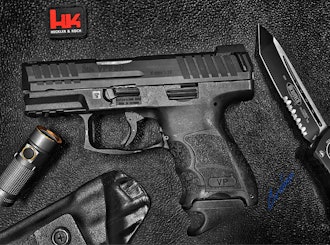Click to view our Accessibility Statement or contact us with accessibility-related questions






Showing 1 of 12 conversations about:

Vargo Titanium Dig Dig Tool

VargoOutdoors
77
Vargo Outdoors
May 31, 2017
Hi, all!
We just thought we'd weigh in here and answer some questions for you.
A. The Dig Dig Tool is made from grade 2 titanium as assumed. We experimented with grade 5 but decided against it for two reasons:
1. Grade 5 is more difficult to work with and wouldn't allow us to make the bends in the handle that we wanted that help increase its comfort and allow for two-handed use (adds more digging power like a shovel).
2. And to a lesser degree of importance, grade 5 cost more which would have made it more expensive for everyone. We wanted to hit the sweet spot of price and performance.
B. Given we used grade 2 titanium, we did have to use a thicker material to increase its strength. However, the weight and price of the Dig Dig Tool falls right in between the smaller, thinner, and less effective Al and Ti trowels and the more common, less expensive plastic trowels on the market. The Dig Dig Tool is plenty strong. You'll have an incredible time trying to bend it under normal use (we've tried!).
C. It does not come with a case or sheath.
D. All in all, the design, shape, and choice of material make for an incredibly strong, more effective digging tool and tent stake. As with all ultralight gear, if you take care of it, it will take care of you for years to come.
Thanks!
Team Vargo

RutaLocura
36
Ruta Locura
May 31, 2017
VargoOutdoorsAt twice the thickness, it can't cost less, at least not just in materials alone. The real cost savings comes from the fact that you can punch grade 2 far more easily, which I am assuming is being done. Biggest cost in a tool like the Tark, is that each one has to be waterjet cut because of the grade of titanium being used, $7 verses $1, never mind the initial tooling costs. The same thing goes for titanium V stakes, grade 5 eats up the dies, if they will even cycle. Yet another case for grade 9, it can be punched and bent almost as easily as grade 2, but is almost as strong as grade 5. Yes, it costs more, but if you use thinner material, you cut costs there, get a lighter tool, and one that is stronger. Factories(US or Chinese) may balk at this, but as a tool and die designer(with years of real world journeyman shop experience), I call BS, it can be done. I understand that everything is a compromise, but not every aspect is worth compromising. I get gigged for products that are both too light, and too heavy, not everything is ideal.

Rucks
0
May 22, 2018
RutaLocuraWell said. I’ve been using this for a year and my answer for a sheath has been spare duct tape on the serrations to not damage the cuben fiber of my pack, while keeping it accessible in nature, for when nature calls. I can pull the duct tape if I’m digging hard ground or leave it on for AT three season soil conditions.
Trending Posts in More Community Picks

Graham88
Completely surprised by the lack of blade diversity here on Drop...
I’ve been a collector of Blades since before my teens, and a retailer coming up on 15… or maybe 20 years. Drop has really been kind of an interesting experience for me, because I do occasionally get to see some unusual tech and sometimes EDC items that otherwise I might not have been aware of. And maybe it’s because I have a deep love of cutlery and bladed weapons, but I find myself trolling through the site looking at it what’s available; and it’s just it’s pretty much the same. And the bladed community here is just always confused me.. every single knife is about the same, they’re almost all drop points and although the handle materials change and brands change.. it’s really just the same knife over and over and over again... occasionally you’ll see a tanto or a slight variant; but rarely… and almost never a serrated blade. And I’m just deeply amazed at this diversion of serrated blades. And I’m just surprised there isn’t more of a request for diversity here.... and I...
Mar 12, 2020
JellyDPhoto
Can we get Sony E-Mount or other mirrorless camera options please..
Would be nice to see some Sony E mount full frame cameras on here. I currently shoot with a A99 and they killed the lense path for better or more option lenses and now is all E-Mount. 🤔
Jan 13, 2020
RayF
There Are Pandas, and Then There Are Pandas.
And this isn't either of them! The Pandas we're talking about here, are watches, not bears. And what got me thinking about them (again) was a link posted this morning by @cm.rook who pointed a few of us to the very attractive (and not terribly priced) Yema "Rallygraph" Panda which, in it's most traditional arrangement, looks like the one on the left, but can also be had in the version on the right: The model on the left is a true Panda, while the model on the right is called a reverse Panda. The reason for that distinction is clear--Panda bears, only come in the first arrangement. Now at this point, everyone should be thinking about the most well-know Panda, The Rolex Panda, which is actually a Daytona, and among Rolex Daytonas, the most famous of which is the Paul Newman Daytona, which was famous first, because it was Paul's, and second because it sold at auction for $17.8 million (US Dollars). The story of that auction is well-known so I'll only...
Nov 8, 2019

